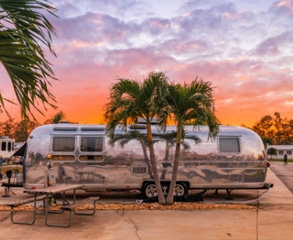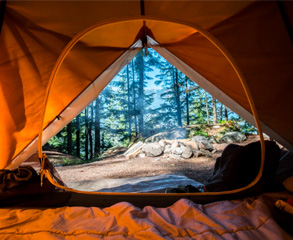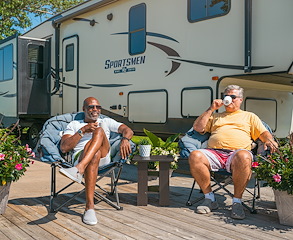10 Tips on How to Unplug from Electronics While Camping
In a world dominated by smartphones and gadgets, many people are searching for ways to unplug from electronics and reconnect with nature. Camping offers the perfect opportunity to escape digital distractions and focus on the present moment. Use these 10 tips to unplug from electronics and enhance your outdoor experience.
1. Keep a Media Diary
Start your journey to unplugging by keeping a media diary. Track how much time you spend on various electronics, including TV, computers, and social media. This awareness will help you understand your usage patterns and set realistic goals for reducing screen time.
2. Use Digital Wellbeing Tools
Take advantage of the Digital Wellbeing tools available on most smartphones. These features track app usage and allow you to set timers that lock apps after a certain period. By using these tools, you can monitor your screen time and enable features like blue light filters and silent notifications to help you disconnect.
3. Leave Work at Home
Before your camping trip, ensure that work stays behind. Set up an out-of-office response for your email and turn off notifications. By committing to leave work behind, you can fully immerse yourself in the camping experience and focus on quality time with family and friends.
4. Avoid Packing Video Games and Movies
To help everyone get into the unplugging mindset, refrain from packing video games and movies for the trip. This encourages everyone to engage with each other and enjoy the journey, making the drive a part of the adventure.
5. Pack Books, Board Games, and Puzzles
Instead of electronic entertainment, bring along traditional activities that promote interaction and relaxation. Consider packing:
- Books for leisurely reading
- Board games for family fun
- Journals to capture thoughts and memories
- Card games for friendly competition
- Crossword puzzles for brain-teasing challenges
6. Use a Paper Map
Ditching GPS navigation can feel daunting, but using a paper map can lead to unexpected adventures. Plan your route ahead of time, and you might discover more scenic paths that GPS overlooks. Enjoying the journey is just as important as the destination!
7. Try a Cell Phone Sleeping Bag
Consider using a cell phone sleeping bag—a cloth pouch that makes it harder to reach for your phone impulsively. This simple tool can help break the habit of mindlessly checking your phone and encourage more meaningful interactions.
8. Have Phone-Free Hours
Instead of going completely phone-free, designate two phone-free hours each day—one in the morning and one before bed. This helps you start and end your day without distractions, leading to improved sleep and more peaceful moments.
9. Bring One Family Cell Phone
When heading out with family, consider bringing just one cell phone for the group. This allows you to stay connected in emergencies while encouraging everyone to unplug and enjoy their surroundings. Keep the phone stored away in a bag to minimize checking.
10. Keep Each Other Accountable
To successfully unplug, make it a group effort. Create fun challenges, like the first person to check their phone during meals takes on a chore, or reward those who stay unplugged the longest with small prizes. Keeping each other accountable adds an element of fun to the process.
Plan Your Next Camping Trip
With these tips, you're ready to unplug and embrace nature on your next camping adventure. Explore our resorts across North America to find the perfect destination for your getaway. Don't forget to share this post with fellow travelers looking to disconnect!









